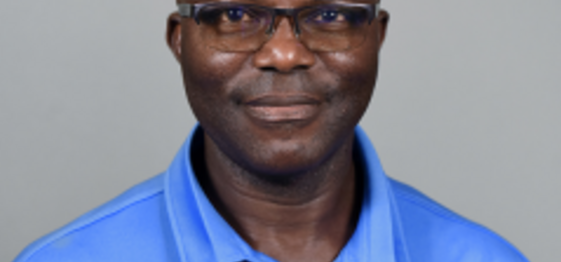Senator Spotlight August 2022
Categories:
Senator Spotlight
Name: Aribidesi Usman
What unit do you represent?
School of Social Transformation (SST)
How many years have you served in the Senate?
Two years
How many years have you been employed at ASU?
21 years
What other institutions have you taught at before coming to ASU?
University of Ilorin, Nigeria
What is your research and/or creative activities focus?
I am an anthropologist in the interdisciplinary School of Social Transformation. My research engages archaeology, ethnohistory, ethnography, archival sources, and the African oral traditions to understand the African past. I am interested in how local communities and peoples responded to, manipulated, and became part of the regional and global historical process (e.g., pre-colonial states expansion, the Atlantic economy).
Why did you decide to get involved with the Senate?
Before I was elected in the Fall 2020 as a senator to represent the School of Social Transformation on the University Senate, I had served as a CLAS Academic Senate representative for African and African American studies from 2005 to 2007. This first experience deepened my interest in the university governance. The University Senate plays important role in the policymaking of the University in several issues, such as issues of educational policies like the creation of new courses, colleges/departments, admission and graduation requirements, changes to academic program content, and others. As member of the Senate my vote to approve/disapprove in the University Senate represents the final University decision.
Describe what you have learned (or hope to learn) during your time in the Senate?
I have learned about shared governance and the role the Senate play in policymaking for the university by making sure the administrators listen and respect the concerns from faculty and students. I enjoyed how the university administrators, such as the president, provost, and other senior officers frequently brief the senate on current development in the university. In my two years at the senate, I have opportunity of meeting faculty members and people in the administration outside my unit that I would never have met If I was not a senator.
What committees have you participated in, or would like to participate in and what were you able to (or hope to) accomplish?
I would like to participate in Personnel Committee and Academic Freedom & Tenure. My goal is on ensuring that fairness and transparency are followed in decision-making affecting faculty and staff and in the distribution of resources at the university.
What would you say to your peers who might be considering accepting a nomination or nominating himself or herself for a position in the University Senate?
Senate is a place where faculty through their senators can freely express their concerns to the administration which can be turned into action that benefits the university community. The Senate is where shared governance works. I would encourage faculty to not just sit on the fence and complain, but to get involved in shared governance. There are different ways that my colleagues can get involved with the Senate and have an influence on policy making. First, by standing for election to the Senate. Second, they can express their concerns to their senators or to a standing committee. Thirdly, they can volunteer to serve on faculty committees.